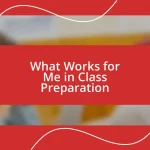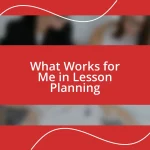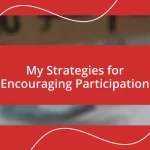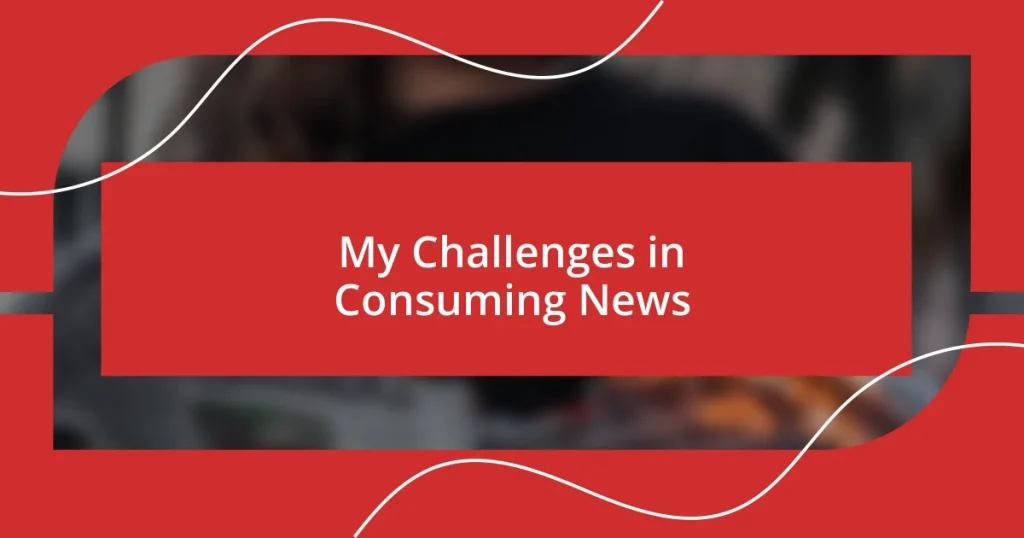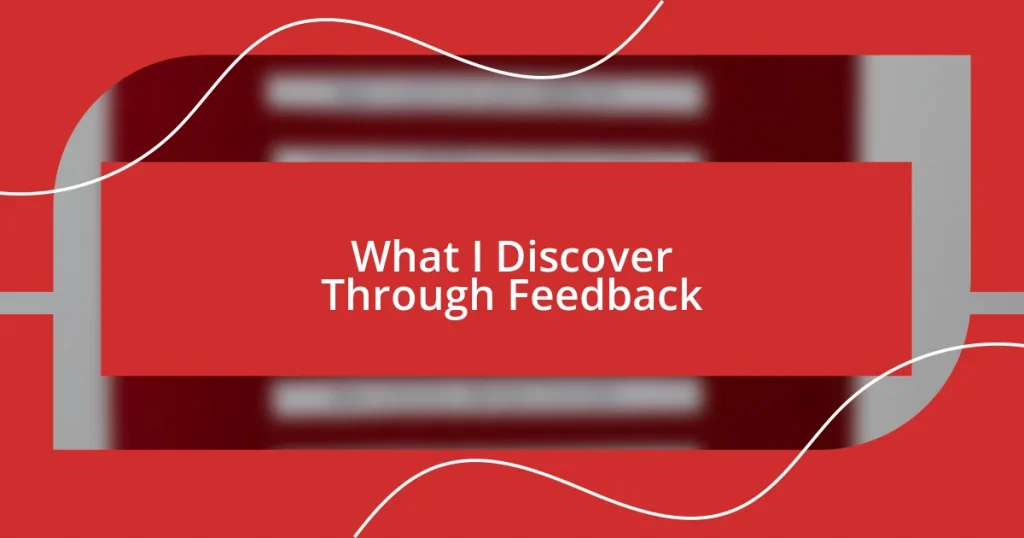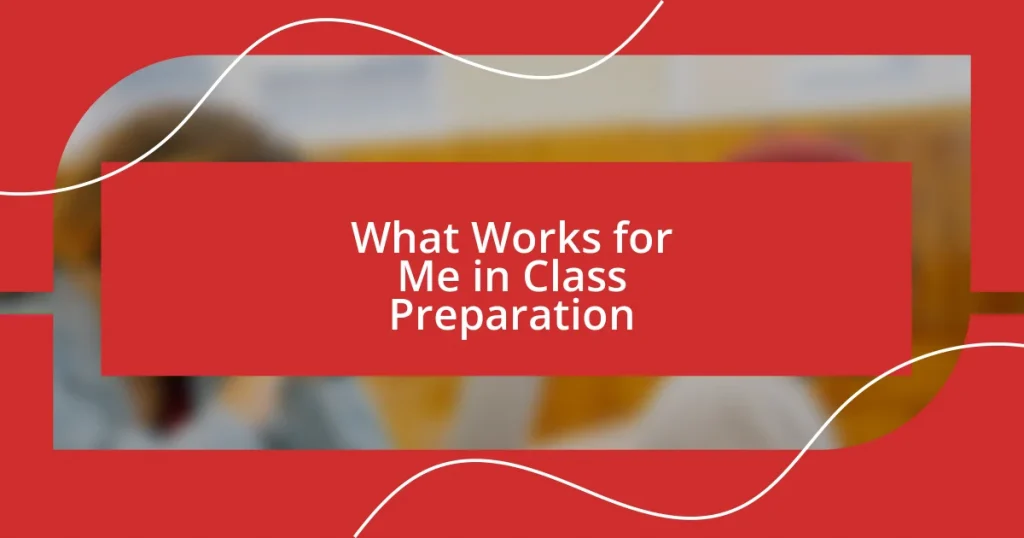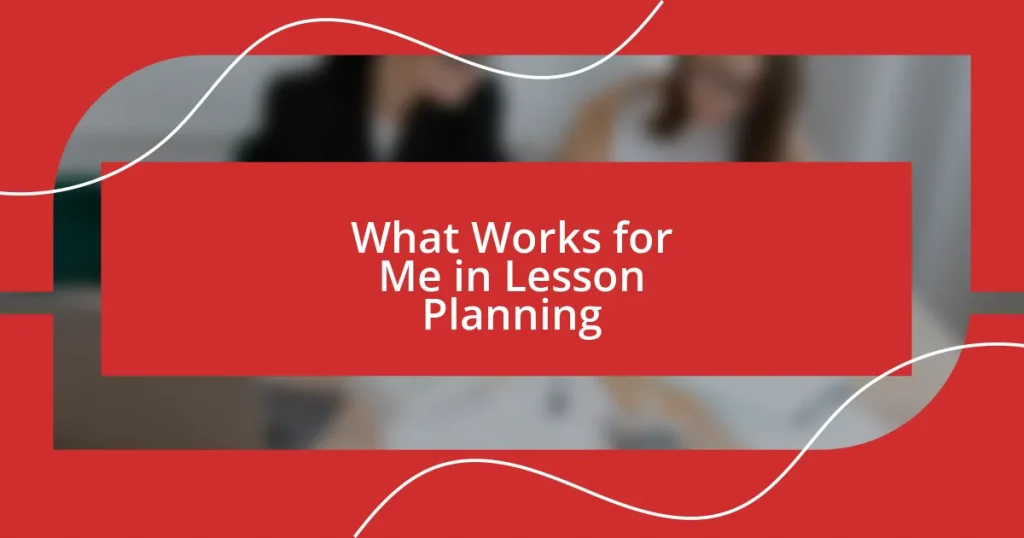Key takeaways:
- Recognizing biases in news sources is crucial for a well-rounded perspective; evaluating ownership, language, and source diversity enhances understanding.
- Developing critical evaluation skills, such as verifying claims and seeking diverse viewpoints, transforms news consumption from passive to engaged.
- Implementing effective news consumption strategies, like setting specific times for reading and incorporating mindfulness, reduces anxiety and promotes meaningful engagement with information.
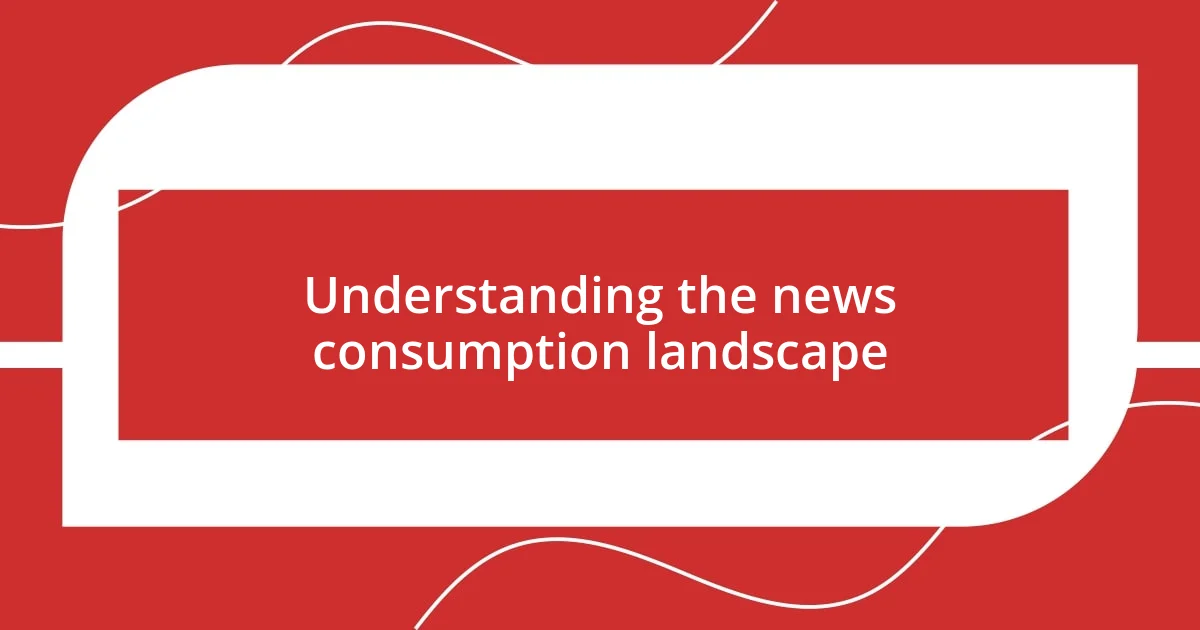
Understanding the news consumption landscape
Navigating the news consumption landscape today feels like wandering through a crowded marketplace—there’s so much noise, yet finding trustworthy sources often seems daunting. I remember a time when I lounged on my couch, scrolling through various news apps, feeling overwhelmed by the sheer volume of information. The thought struck me: how do I decide what’s important amidst the distractions of sensational headlines and clickbait?
As I sift through articles, I often ask myself how biases shape my understanding of the world. One day, after reading two articles from opposing sides on a political issue, I felt a mix of confusion and frustration. This experience taught me that context matters, and I’ve learned to seek out multiple perspectives to get a clearer picture. How can we claim to be informed citizens if we’re only exposed to a limited viewpoint?
The rise of social media has further complicated this landscape, transforming it into a double-edged sword. I’ve had moments where scrolling through my feed left me feeling anxious or uninformed, as algorithms prioritize sensational content over substance. It’s a reminder that while these platforms offer a wealth of information, the responsibility to curate my news rests on my shoulders. How do you balance staying informed without feeling overwhelmed?
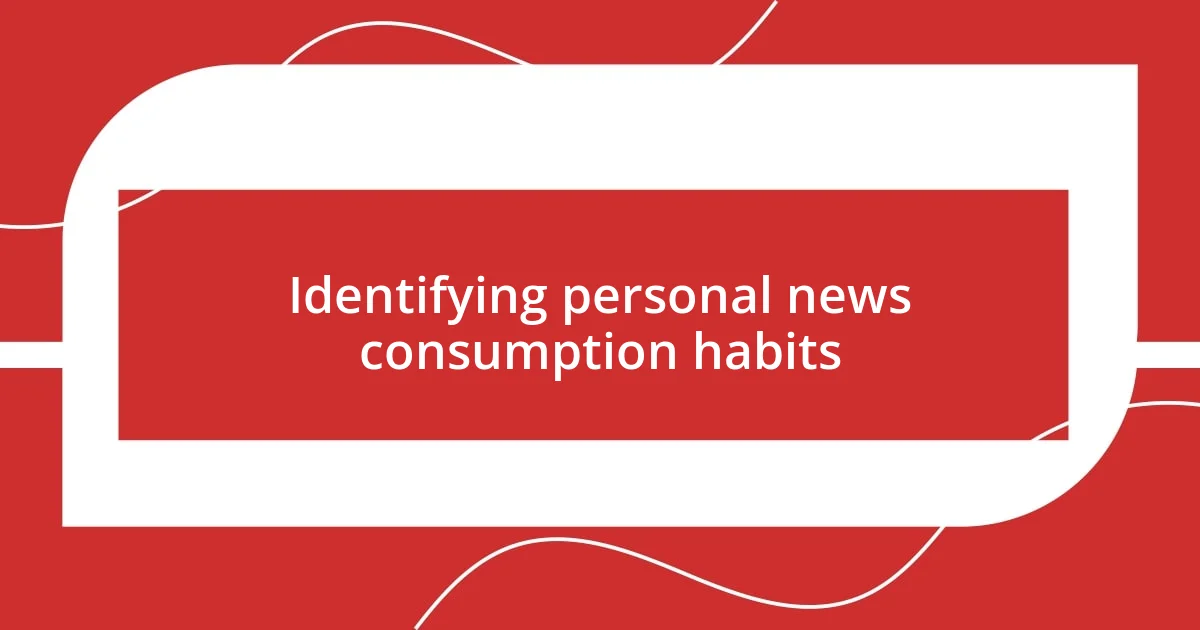
Identifying personal news consumption habits
Identifying personal news consumption habits is a critical step in understanding how I approach the information flood daily. I often catch myself gravitating towards specific sources that align with my interests, but this tendency can lead to an echo chamber where I miss out on vital viewpoints. For example, I realized that I primarily consumed news through a popular app, which filters content based on my previous interactions. This might make my news experience feel personalized, but I can’t help but wonder if it’s limiting my perspective.
Reflecting on this, I’ve noticed how my mood influences my news consumption. On days when I’m feeling particularly stressed, I find myself opting for lighter news stories, especially about lifestyle or human interest topics. I recall a weekend when I bypassed hard-hitting political news for feel-good stories about animals and community heroes. This preference can provide a temporary escape, but it also leaves me feeling unprepared for critical discussions that require a broader understanding of current events.
As I evaluate my habits, I also acknowledge the time I dedicate to news. At times, I immerse myself for hours, seeking constant updates. Other days, I intentionally limit my news interaction to avoid burnout. I’ve learned to compartmentalize this consumption much like I do with entertainment. Balancing news intake with leisure has made a remarkable difference in my overall well-being.
| News Source Type | Personal Habits |
|---|---|
| Social Media | Scrolling feeds during breaks |
| News Apps | General updates in the morning |
| Podcasts | Listening while commuting |
| Traditional Media | Often overlooked in favor of digital sources |
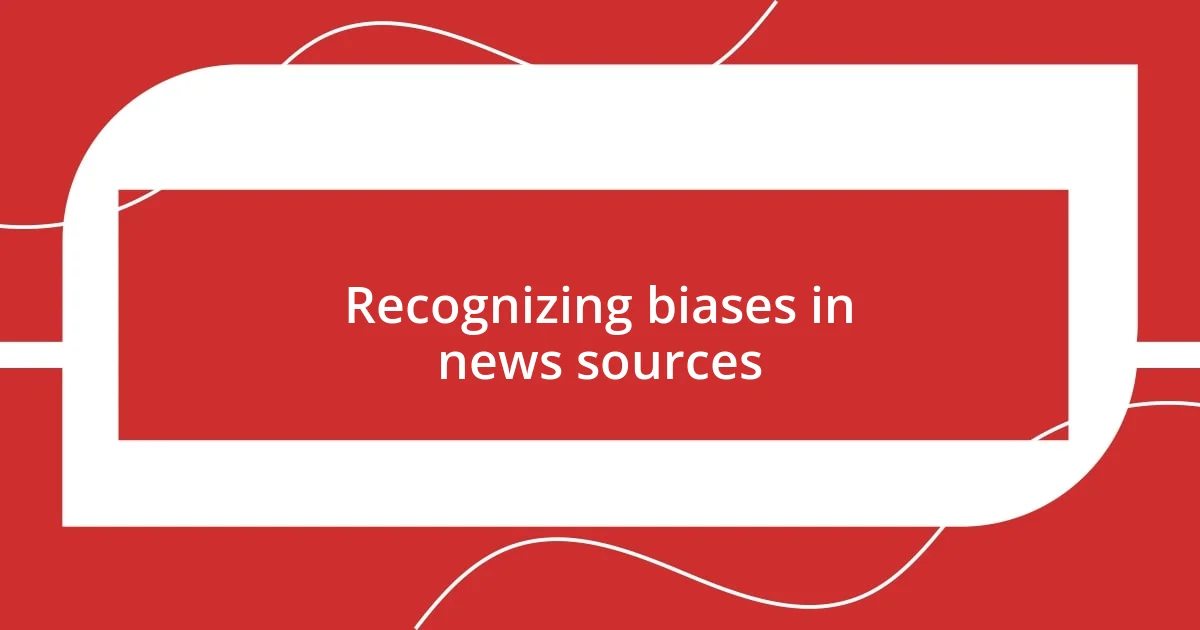
Recognizing biases in news sources
Recognizing biases in news sources is essential to developing a well-rounded perspective. I remember a moment when I read an article that supported my viewpoint on a contentious topic. I felt validated at first, but a nagging thought lingered—what if the source was deliberately ignoring key facts? This realization underscored the importance of evaluating who’s behind the information. Understanding an outlet’s political leanings or financial interests can illuminate the potential biases at play.
To help identify biases, consider these key points:
- Ownership: Investigate who owns the news outlet—corporate interests can significantly influence reporting.
- Language Choices: Pay attention to the language used; loaded or emotionally charged words can sway opinion.
- Source Diversity: A reliable article will often cite a range of sources to present a balanced view.
- Fact-Checking: Use third-party fact-checking services to verify claims made in articles.
- Audience Targeting: Recognize the outlet’s target audience; they will typically frame stories in ways that resonate with their readers.
Over time, I’ve learned to interrogate my sources, leading to more thoughtful conversations instead of knee-jerk reactions to headlines. It’s like peeling back layers to see the full story; sometimes, what seems like a straightforward fact is steeped in narrative. This practice helps me stay informed without losing sight of the bigger picture.
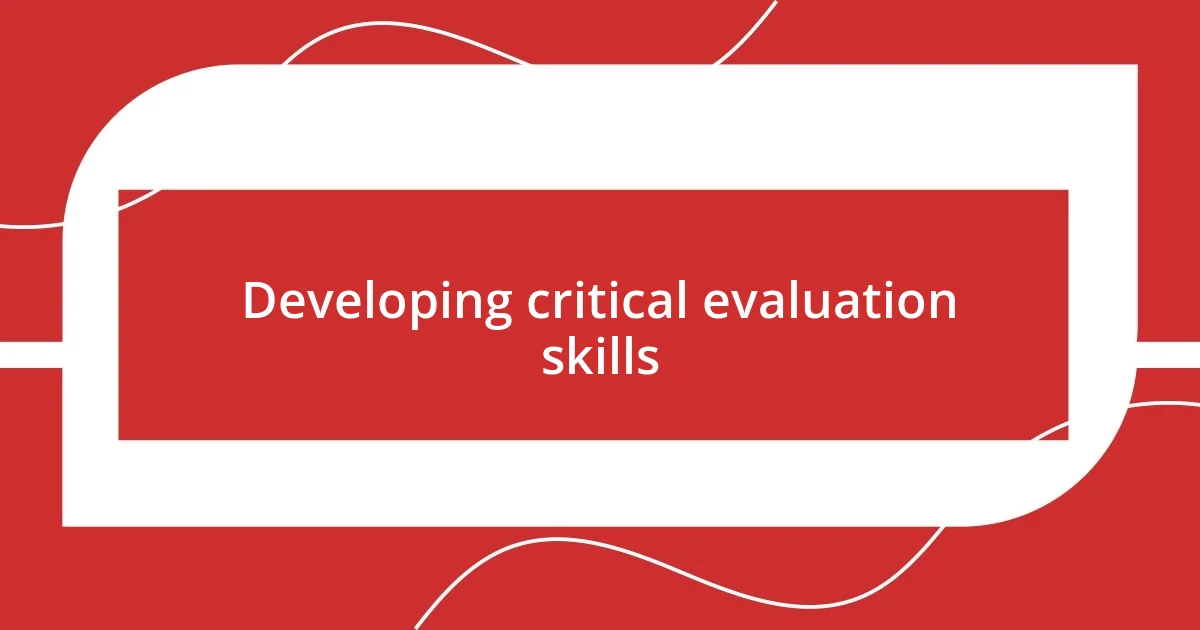
Developing critical evaluation skills
Developing critical evaluation skills has become essential in navigating the complex media landscape. I still vividly recall a moment when I saw a post on social media claiming a shocking statistic. My first instinct was to share it, but then I paused—was it credible? I decided to dig deeper, checking multiple sources before letting my fingers hit ‘send’. This small act of diligence not only boosted my confidence in sharing accurate information but also sparked an exhilarating sense of responsibility.
I find that engaging with a variety of perspectives enhances my ability to think critically about news. For instance, when I stumbled upon a podcast that featured a journalist from a traditionally opposing viewpoint, I was surprised by the insights they provided. Listening to their experiences offered a fresh take on issues I thought I understood. This expanded my narrative frame and highlighted just how diverse news interpretations can be. Have you ever experienced a moment where a different viewpoint changed your mind on a topic? When it happened to me, it underscored the value of an open mind.
Moreover, I’ve realized that context is everything. I often consider how the timing of information influences reactions. For example, during breaking news periods, bias can run rampant, making it crucial to identify the context of reports. I remember feeling overwhelmed during a recent major news event, where opinions flew online before the facts settled. I found myself actively seeking out comprehensive analyses, which allowed me to differentiate between hype and substance. By honing these critical evaluation skills, I’ve transformed my news consumption from passive scrolling to an engaged, informed journey.
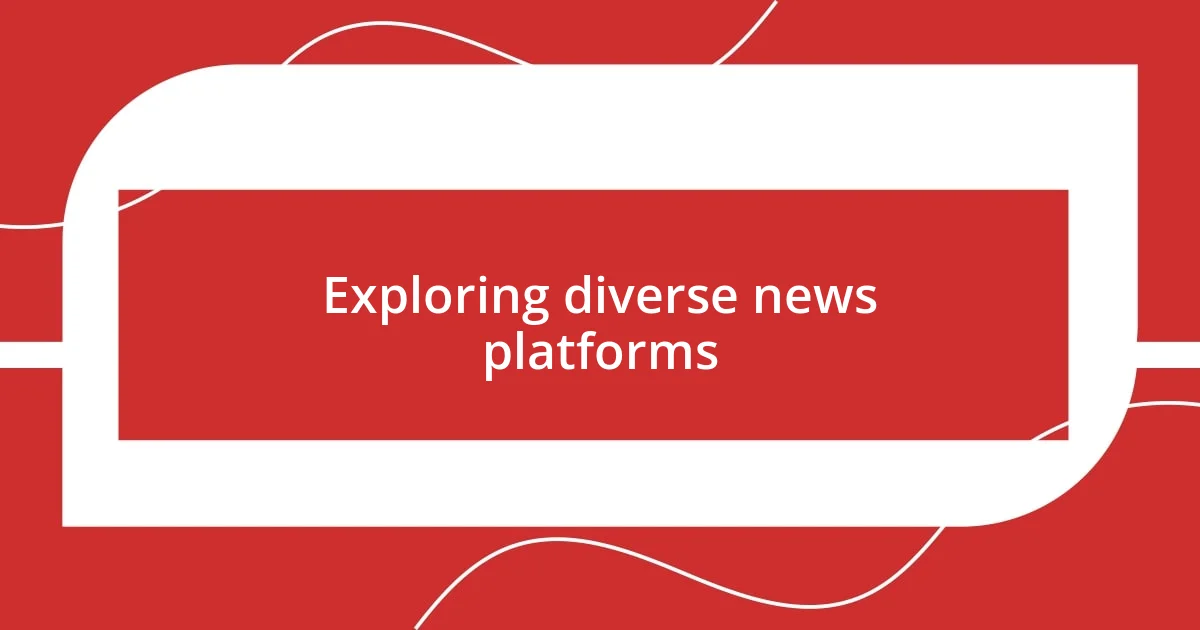
Exploring diverse news platforms
Exploring diverse news platforms has genuinely broadened my understanding of the world. I remember the first time I sought out alternative media sources, and it felt like stepping out of a comfort zone. Trying different platforms exposed me to multifaceted narratives on current events that I had previously dismissed. It made me reflect: What stories are we missing by only sticking to one type of news outlet?
Embracing varied sources has not only enriched my perspective but also highlighted the importance of niche platforms. For example, when I discovered an independent news blog that focused on local community issues, I was astonished by the depth of coverage. Their stories brought to light experiences from people I’d never heard from before, making national issues feel more relatable. This made me realize how vital it is to support diverse journalism; it fosters a fuller understanding of society’s nuances.
Sometimes, I find myself pondering the value of news aggregators or apps that curate information from multiple outlets. While they’re convenient, do they also risk creating echo chambers? I acknowledge my reliance on these tools, yet I always remind myself to dig deeper into original articles and the context behind each piece. Balancing convenience with curiosity has become my goal, ultimately enhancing how I connect the dots in the sea of information we face.
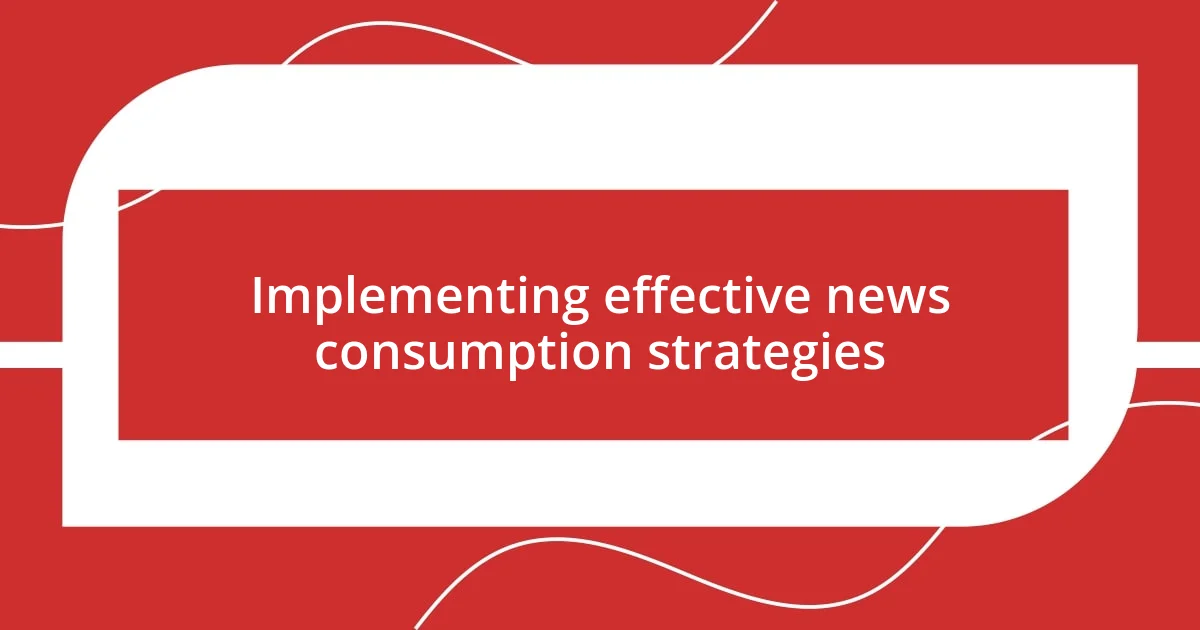
Implementing effective news consumption strategies
I’ve learned that setting specific times for news consumption can significantly reduce feelings of anxiety and overwhelm. When I started dedicating just 30 minutes each morning to catch up on news, I noticed a remarkable difference in my mindset. Instead of mindlessly scrolling throughout the day, I felt more focused and intentional, allowing the day’s noise to settle around me. Have you tried limiting your news intake to specific times? It can transform the way you encounter information.
Incorporating mindfulness techniques while consuming news has also been eye-opening for me. I once experimented with turning my news reading into a meditative practice. By taking deep breaths and genuinely absorbing what I read, I found I could separate the emotional weight from the facts. This approach allowed me to engage with the news more thoughtfully, rather than reacting impulsively to headline after headline. I realized that slowing down my consumption didn’t mean I was less informed; rather, I began to engage with the material on a deeper, more meaningful level.
Establishing a system of note-taking while consuming news has become my secret weapon. I recall a particularly heated debate on social media that left me feeling confused and frustrated. Rather than simply participating without context, I started jotting down key points and questions as I read articles. This strategy not only clarified my thoughts but also equipped me to contribute more effectively in discussions. It makes me wonder: how many mindsets could shift if we documented our news experiences? There’s something powerful about tracking our responses that leads to richer understanding and dialogue.

